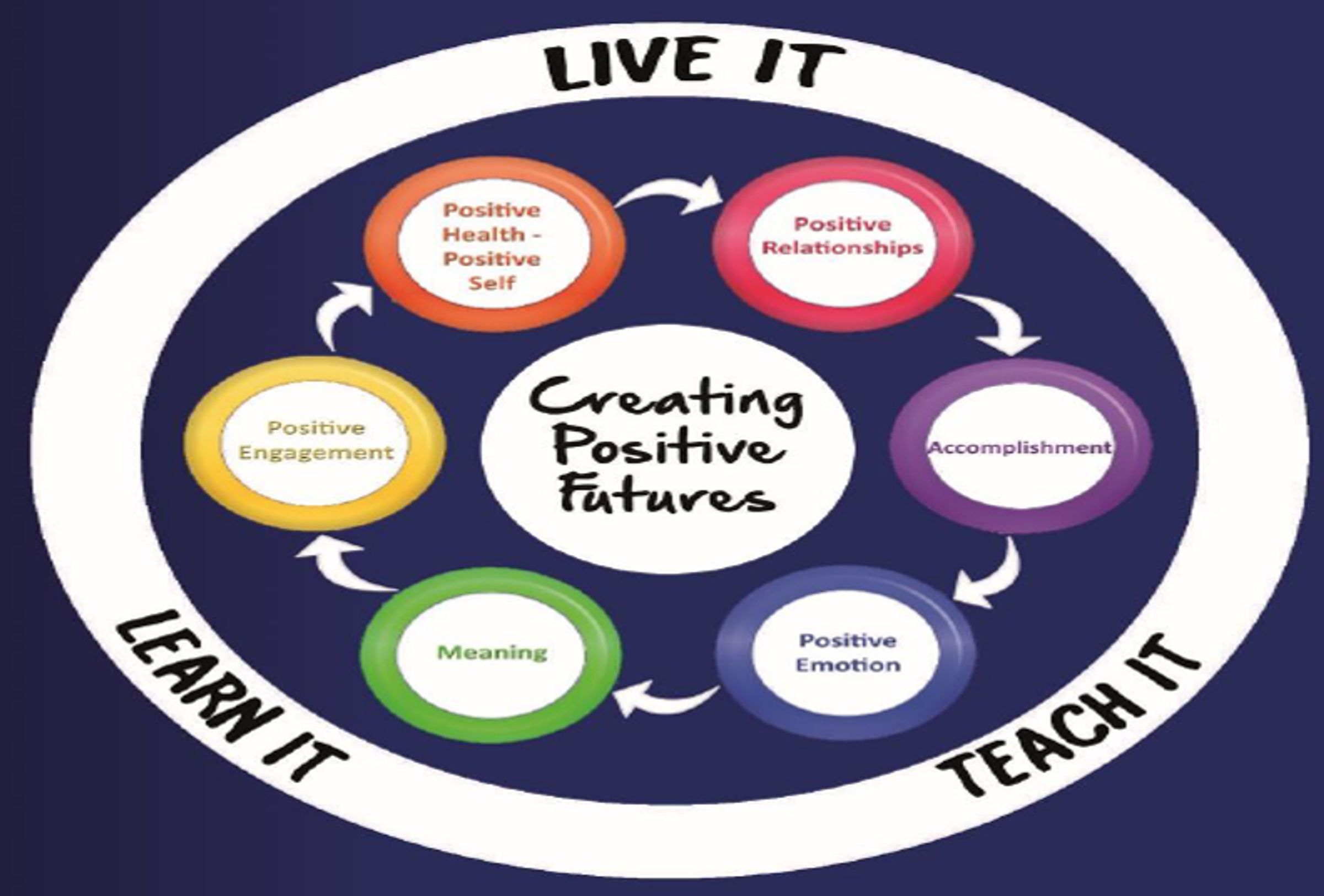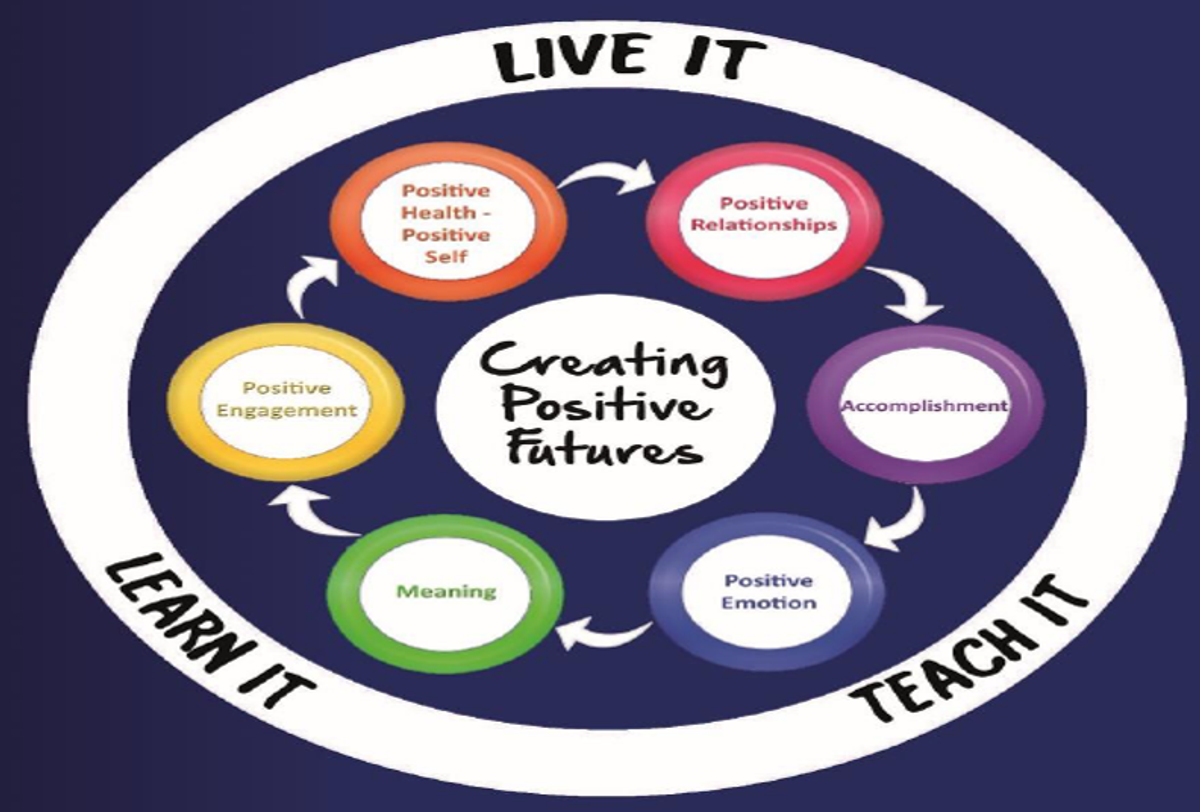
Positive Futures News
What is the EDSC Positive Futures program?
Positive Education brings together the science of positive psychology with best-practice teaching.
The school’s journey with Positive Education began in 2012 with Positive Education focuses and values implemented across each year level and over time has evolved into the whole school approach launched in 2020.
Our Positive Futures program has some very clear goals:
- We want to improve student quality of life and their engagement with others, including with their teachers
- We seek to develop students in a more holistic way, with a stronger focus on wellbeing
There are six tenets of Positive Psychology that are embedded into our model:
Positive Health – Positive Self
Developing knowledge, understanding and skills to promote health and well – being.
Positive Relationships
Nurturing positive relationships based on respect.
Accomplishment
Generating hope and optimism through the accomplishment of personal and community goals
Positive Emotion
Building and experiencing positive emotion.
Meaning
Believing in serving something greater than ourselves.
Positive Engagement
Developing critical thinkers by promoting challenge, curiosity and creativity.
More resources and information can be found here:
https://www.eastdonsc.vic.edu.au/wellbeing-engagement-positive-futures
Temporary Restructure of Positive Futures
Due to current COVID restrictions and trying to limit mixing of year level groups we have still had the last two weeks in our year level group structure.
The topics we have covered in the class have been Smart Goal Setting, character strengths and Motivation/International Women’s Day.
Some examples of the types of work covered:
SMART GOALS
Do you ever feel like you're working hard but not getting anywhere? Maybe you see little improvement in your skills or achievements when you reflect on the last five or 10 years. Or perhaps you struggle to see how you'll fulfil your ambitions during the next few years.
Many people spend their lives drifting from one job to another, or rushing around trying to get more done while actually accomplishing very little. Setting SMART goals means you can clarify your ideas, focus your efforts, use your time and resources productively, and increase your chances of achieving what you want in life.
To make sure your goals are clear and reachable, each one should be:
- Specific (simple, sensible, significant).
- Measurable (meaningful, motivating).
- Achievable (agreed, attainable).
- Relevant (reasonable, realistic and resourced, results based).
- Time bound (time-based, time limited, time/cost limited, timely, time-sensitive).
Why do I need to know my Character Strengths?
Knowing your character strengths isn’t just interesting information. When skillfully applied, character strengths can actually have a significant positive impact on your life.
Research shows that using your character strengths can help you:
- Buffer against, manage and overcome problems
- Improve your relationships
- Enhance health and overall well-being
‘Character strengths are the psychological ingredients for displaying human goodness and they serve as pathways for developing a life of greater virtue. While personality is the summary of our entire psychological makeup, character strengths are the positive components – what’s best in you.’
- Values in Action (VIA) Institute, 2014.
In other words – character strengths are the positive human qualities that serve as pathways for living a good life.
Researchers Martin Seligman and Christopher Peterson led a large team of social scientists who worked together to identify a comprehensive set of virtues and character strengths that have been valued throughout history, and across cultures and religions. At the conclusion of this three-year process, they published ‘Character Strengths and Virtues’ (2004), which identified six virtues and 24 character strengths that appear to be universal, labeling these the ‘Values in Action Classification of Character Strengths.’
The ‘virtues’ can be described as the universal, core characteristics and the ‘strengths’ are specific routes through which the virtues can be displayed (Niemic & Wedding, 2008). These virtues are age-old and have been discussed by philosophers such as Plato, Aristotle and Socrates.
It’s important to understand that your character strengths are not who you are, but they are what you currently do. Although some character strengths may seem more natural for individuals to use, all 24 do exist within each and every one of us and can be drawn upon to action.
Although your character strengths are relatively stable, changes in life circumstances alter the opportunities to action particular strengths and intentional activity will also likely result in some significant changes in your character strengths ranking.
It is possible to nurture particular strengths by focusing on a character strength and endeavouring to action it on a more regular basis. However, it is also important to note that there is a potential ‘shadow side’ to character strengths. In particular, individuals must be aware of overusing or misusing their signature (top) character strengths and underusing their supporting strengths.
The VIA Character Strengths Survey can be completed online for free to help identify your strengths. There is also a youth survey available for ages 10-17. After completing the survey, your character strengths could then be classified as:
- ‘top’ strengths (1-5),
- ‘supporting’ strengths (6-10), and
- ‘lesser’ strengths (11-24). (Yeager, Fisher & Shearon, 2011).
As the weeks go on we will keep you updated on our lessons and any format changes.
Positive Futures Positive Podcast
The Daily Boost
This is one of the most listened to podcasts in the world, and it’s easy to see why. Every day you get ten minutes of practical, funny, real life tips that will boost your confidence and kick-start your day. Give it a try!
https://itunes.apple.com/us/podcast/daily-boost-daily-motivation/id207251905?ign-mpt=uo%3D8
Rebecca James
Student Engagement and Connection Learning Specialist


